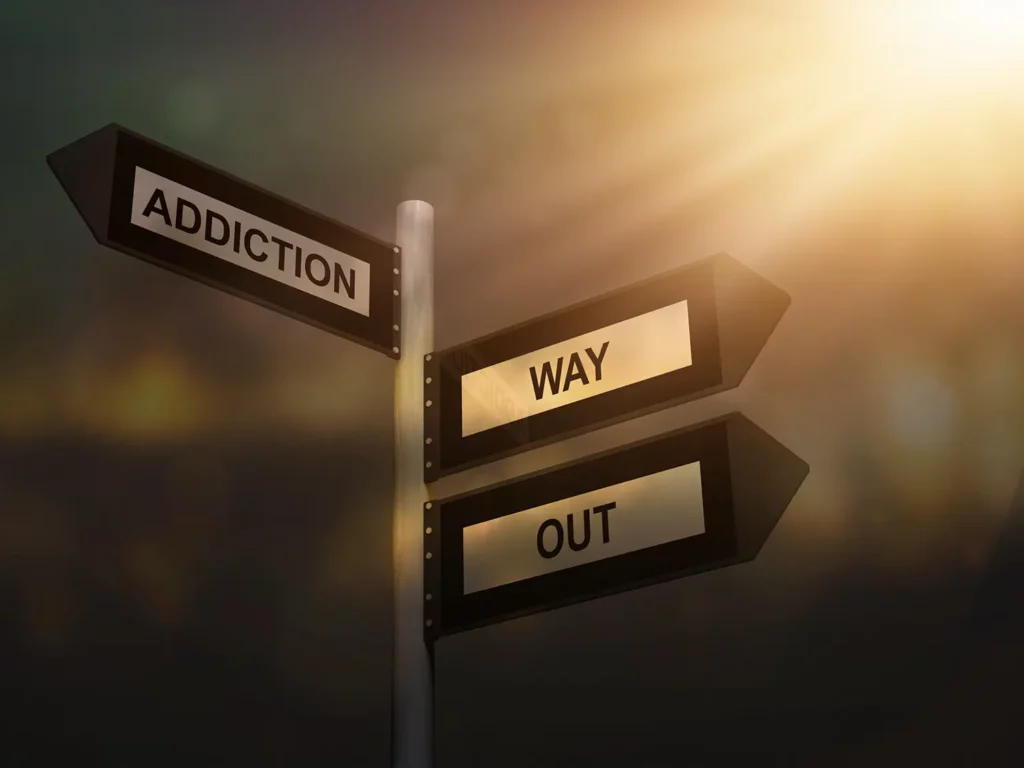No matter which mind-altering substance you are discussing, there are always dangers inherent to using drugs or alcohol for any reason. The more dependent someone becomes on such chemicals, the more likely they will face problems due to drug use. In the cases of both alcohol and heroin, regular use of either substance can result in trouble for everyone involved.
Of course, alcohol and heroin are vastly different in a variety of ways. Alcohol is legal for people of the required age whereas heroin is acquired through less-legal avenues. Each substance also interacts with both the mind and body in unique ways. This makes determining which of the two substances is more destructive in the long run a bit of a challenge. However, by comparing each substance thoroughly, we can come to understand the risks associated with them and ultimately make better decisions about what we ingest in our bodies.
The Physical and Mental Effects of Alcohol
When someone ingests an alcoholic beverage, the alcohol reaches the brain in about five minutes after the first sip. The mind begins to feel the effects after 10 minutes, and your liver begins to process the incoming fluids roughly 20 minutes into the entire process. Alcohol is absorbed through the stomach and enters the bloodstream in order to quickly travel throughout the body. If you have ever drunk alcohol before, you know just how quickly both the mind and body begin to feel the effects.
The Physical Effects of Alcohol
The initial effects of alcohol on the body are an increase in temperature and a slight sensation of numbness. As more alcohol is consumed, additional effects, such as blurry vision and slurred speech, begin to emerge. Coordination is reduced, and sloppy mistakes are likely to occur when you are moving around.
Intoxication begins to kick in when the body can no longer metabolize all the alcohol as quickly as it is pouring into its stomach. This could be considered a medical emergency as the heart rate skyrockets, breathing gets harder, and nausea overwhelms the person. In some extreme cases, body death can even occur if too much alcohol is consumed rapidly.
The Mental Effects of Alcohol
The mental effects of alcohol can vary wildly depending on how much is drunk at one time. Slight volumes of alcohol can produce a euphoric feeling that spurs social interaction and reduces inhibitions. As more is imbibed, the euphoria turns into excitement that may be seen as erratic by others. This is paired with a lessened ability to focus or concentrate on any one subject for very long. Reaction times and judgment also falter as more alcohol takes hold. Further drinking leads to confusion and even a stupor. Should someone really overdo it, they will simply fall unconscious from all the excess alcohol.
The Physical and Mental Effects of Heroin
Heroin is a fast-acting drug that begins working on the brain and body almost instantaneously. This produces a number of strong effects on both the physical and mental side of things.
The Physical Effects of Heroin
The brain has special mu-opioid receptors that are activated when a drug like heroin is consumed. The main purpose of this is to reduce pain in the body, but there is another major consideration. The interaction of the drug and the brain’s natural receptors stimulates numerous reward centers within the brain. Most notably, the neurotransmitter dopamine is released in large quantities. This creates a pleasurable feeling throughout the body while also creating an addictive feedback loop that dramatically increases the likelihood of repeat heroin usage.
The Mental Effects of Heroin
Aside from the joy of having physical pain relieved, heroin induces another powerful effect on the mind. A euphoric sensation occurs soon after the drug is taken, and a sense of tranquility persists for many hours after the initial elation settles down. The issue with this is the euphoric effect is unnaturally potent, which shocks the system and makes it difficult to derive pleasure from normal activities after sobering up. The only thing that can make the person feel good is the initial rush received from a hit of heroin.
How Addictive Is Alcohol?
Compared to many substances and activities, alcohol proves highly addictive among people who are predisposed to having addictive personality traits. While some people can handle a few drinks without too much consequence, it is important to accurately evaluate and understand your relationship with the substance. Having a few drinks during social outings is how it starts and where it should end for most people. To determine if alcohol addiction is afflicting you, honestly ask yourself if you can go long periods without drinking.
Alcoholics tend to drink each chance they can get and will start early in the morning before it is considered socially acceptable. Keep in mind that alcohol addiction slowly ramps up over time, so it may not be obvious when someone first starts showing signs of alcohol addiction. In any case, the strength of the addiction is determined by how many habitual drinks a person reaches for.
How Addictive Is Heroin?
Heroin is a highly addictive drug for several reasons. The initial pain relief can be quite alluring for anyone who is suffering from a physical affliction. The euphoric feeling that comes with taking the drug will quickly overstimulate the brain’s dopamine receptors in tandem. The result is a sensation that the user becomes increasingly dependent on over time. As more heroin is consumed, the body builds a tolerance to the chemicals. Larger doses are required to enjoy a similar feeling as the initial few sessions.
Another way to tell the addictive level of heroin is to examine the withdrawal effects experienced by anyone who stops taking the drug abruptly. These include vomiting, diarrhea, sleep issues, muscle pains, leg spasms, and the inability to focus on anything other than finding the next hit. While it is totally possible to kick a heroin habit, the challenges faced by doing so prove just how addictive the substance is in the first place.
Can Alcohol Be Deadly?
Alcohol can be extremely deadly when consumed in large volumes over a short span of time. Once intoxication kicks in, a person will need to have their stomach pumped as soon as possible to avoid alcohol poisoning, which could prove fatal. Since habitual alcohol drinkers build a considerable tolerance to the effects of their beverages of choice, longer and longer drinking sessions become commonplace as the addiction grows stronger.
Although this may seem like a rare occurrence, alcohol accounts for roughly 88,000 deaths per year in the United States. When comparing raw numbers, alcohol kills more people annually than most other drugs combined. The addictive nature of alcohol can quickly spiral out of control and lead to severe consequences.
Is Heroin Deadly?
Heroin can be quite deadly in two specific ways. As with any drug, a person can experience a fatal overdose by consuming more than their body can handle in a short duration. As tolerance grows and more heroin is required to receive the same sensations, the threshold for body death can be reached by heavy users of the drug.
The more insidious way heroin kills is due to its illicit nature. Since the heroin market is not officially regulated, you never know what each hit consists of before taking it. A dose of Heroin sold on the streets could be laced with all manner of other drugs that may prove fatal due to an incorrect pairing of chemicals. For instance, a large enough dose of fentanyl could be mixed in and cause severe problems for anyone who takes in both substances simultaneously.
Should You Seek Assistance for Alcohol Addiction?
Whether you are physically addicted to alcohol or simply show some signs of problem drinking, it is always a great idea to begin tackling the issue. Oftentimes, the best way to do that is to seek some external assistance. We offer tons of services for alcohol addiction, and sometimes talking to a loved one is all you need to achieve some perspective on the matter. Outside help is a powerful resource as another person can help you identify problematic behaviors and help keep you sober when cravings come calling.
Should You Seek Assistance for Heroin Addiction?
As with alcohol, seeking assistance for a heroin habit is always a wise course of action. We also offer plenty of services for heroin rehabilitation and are always willing to help someone on the path to recovery. Due to the strong withdrawal effects associated with the drug, having some backup when attempting to kick the habit will serve the recovering person well.
Alcohol vs Heroin: Which Substance Is Most Harmful?
Overall, heroin proves more harmful as even a single dose from a laced batch can result in death. This is not guaranteed to happen, but alcohol actually has quality control and safety standards due to being part of the regulated market. Heroin users are also more likely to become addicted to the substance than someone who drinks occasionally in social situations. Comparatively, it only takes a few hits of heroin to form a habitual loop.
However, this does not mean that alcohol is completely harmless. The substance accounts for more deaths each year due to the sheer volume of products and how easy it is to acquire them. While it is less deadly in moderation, drinking regularly can shorten the lifespan, cause major health problems, and makes surviving other medical emergencies more difficult. Even though heroin is more deadly, you should never underestimate the dangers of habitual drinking.
Help Is Closer Than You Think
If you or someone you know is dealing with an addiction, Charles River Recovery offer solid rehabilitation programs that can help get someone back on track. Whether you have an issue with alcohol or heroin, seeking treatment is an important step to returning to your regularly scheduled life. Simply dial 888-500-8000 to get started. Our calming facility in Weston, Massachusetts is a fine place to regain mental clarity and restore your body to a clean state.






